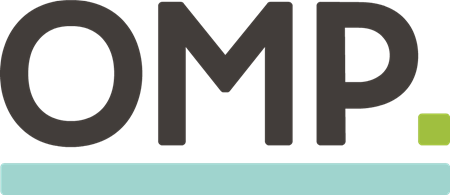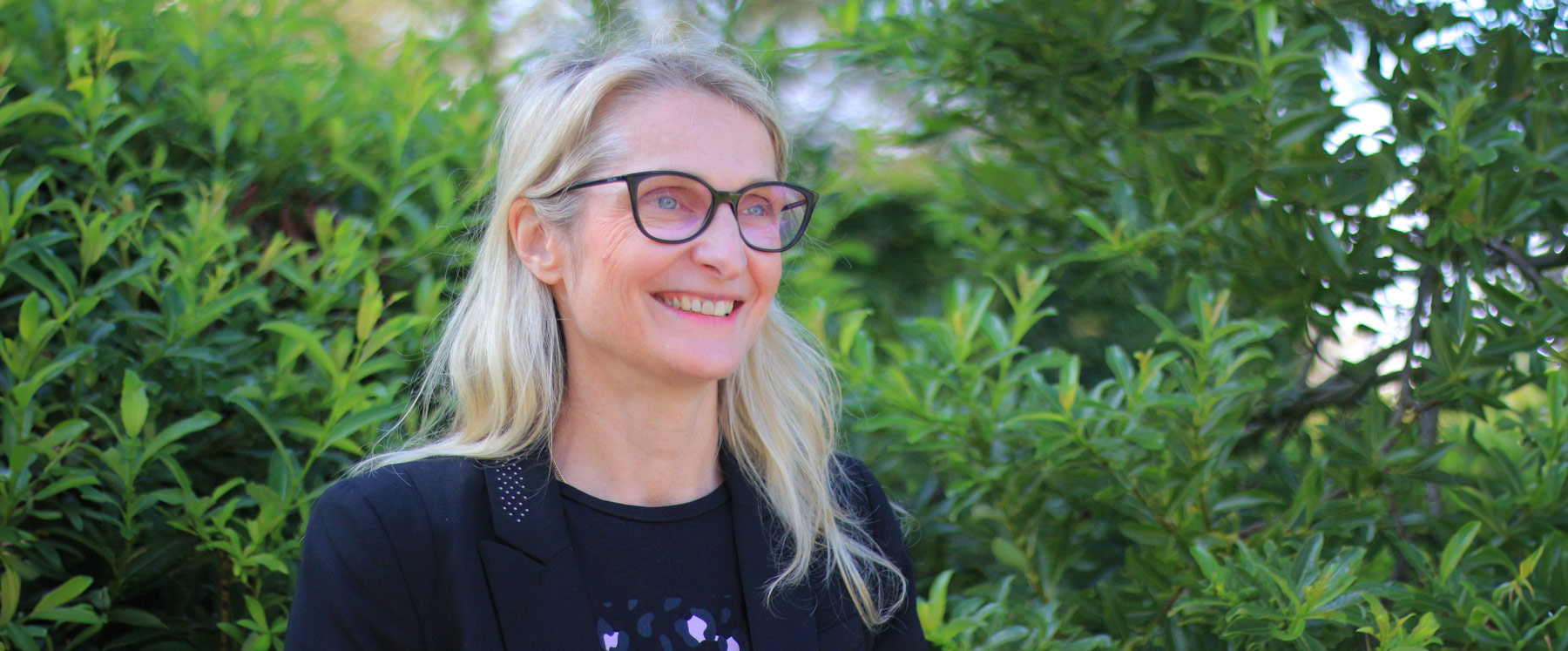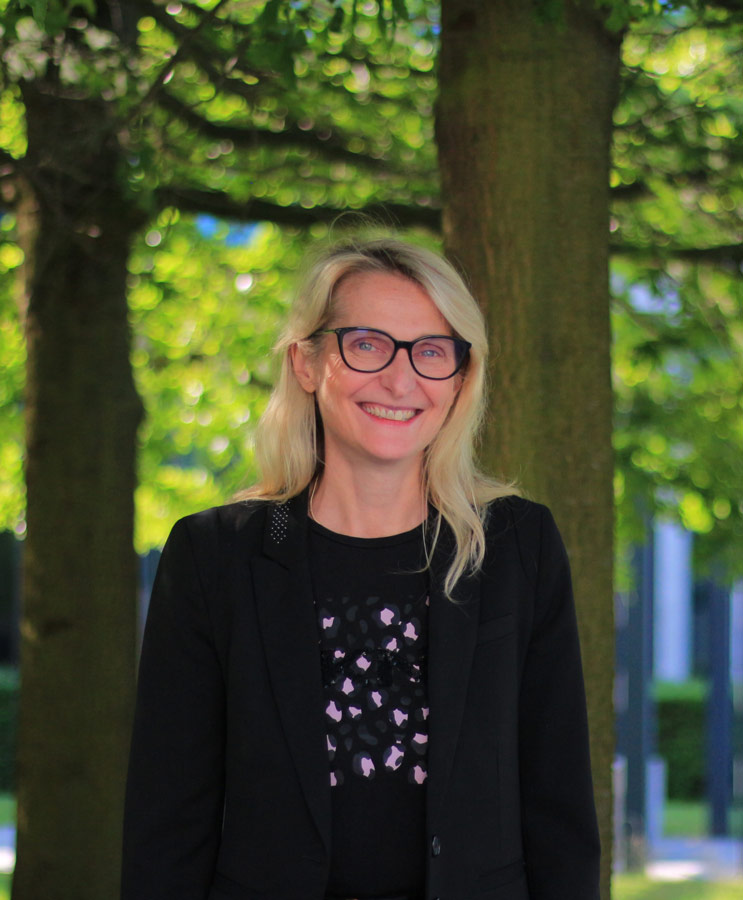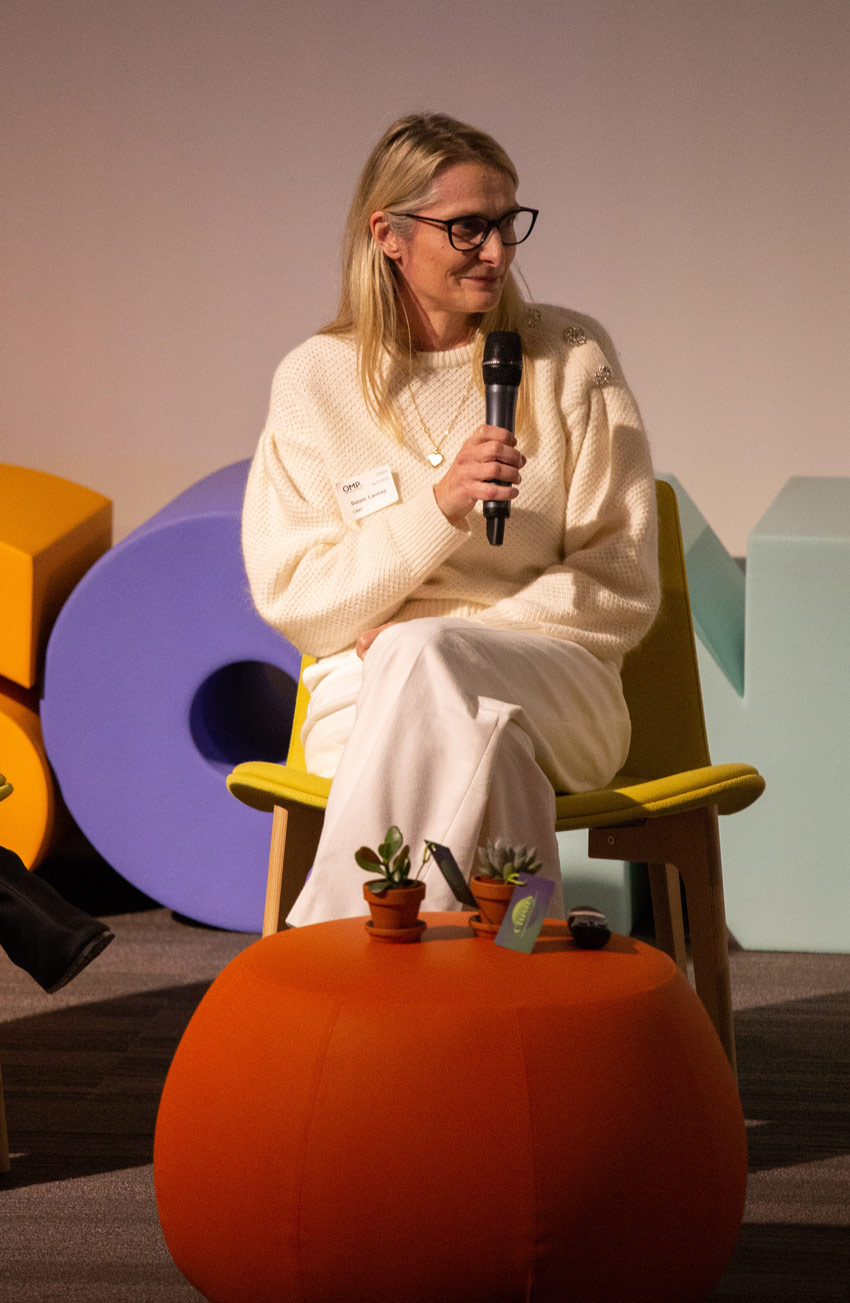
Feeling at home in tech: Soizic Launay's journey from biology to software testing
Interview from Clusity with Soizic Launay, Senior Quality Assurance Test Manager OMP

It doesn’t matter where you start, all roads can lead to tech. Don’t believe us? Meet Soizic Launay, and you’ll quickly change your mind. From studying molecular biology, Soizic is now a Senior Quality Assurance Test Manager for OMP. Curious how she made the change? Keep reading to find out.
Step by step to tech
Your path into the tech world is fascinating. But let’s go back to the start, what was it about molecular biology that caught your interest?
When I chose my studies, I had no clue about technology. It was definitely not in my scope. Instead, I was actually interested in the biology of humans and animals, biotechnologies, and genetics. Understanding how things work was my driver to choose my higher studies.
I spent my summers doing internships. One year I worked in the food industry, at a company producing Lion chocolate bars. I found it really interesting, it was really practical, and I enjoyed that. At the end of my internship, I spoke to the owner of the company and I decided to apply for a job there after finishing my next course on genetics and biotechnologies for the food industry at Toulouse University, which was one of the most renowned places to study if you want to enter in the industry.
Toulouse University has an outstanding reputation for industry and technology. What were the biggest lessons that you learned there?
I remember a session by Professor Luc Montagnier, the Nobel prize winner. He was explaining something that was extremely complex, but he made it seem straightforward, easy almost. I found it really clever that even the most complicated things in biotechnologies could be explained like that. I thought to myself “Okay, even if something is challenging to understand or master, you can overcome these difficulties when helped by a good, clear explanation”.
"If something is challenging to understand or master, you can overcome these difficulties when helped by a good, clear explanation."
I still use this epiphany in my work today every time something complex and new comes up. When my team members ask for help, I always say, “Let’s go step by step and dig down until we find the route of the complexity”. And that’s when we’ll all understand.
So, from biotechnologies to software. How did you make that step?
It was about this time that my interests shifted towards the biochemistry food industry, leading me to study agronomy, biotechnology, and industry at an engineering school. That was one step.
The next step was my first full time job in the food industry as a logistics manager, where I learned about production planning and quality control, which interested me. The next step was my then-husband being offered a job in Belgium, which was when I found OMP. I became a consultant, implementing the system that I had been using in my previous job.
That’s a big change, moving from being a user of a system to being behind the scenes and implementing it for others to use. How did you handle the transition?
Well, like everything else — step by step. I started with customer implementations, then transitioned to the quality team, using my user experiences to ensure effective testing. I found that understanding customer use cases was key. As software evolved from desktop to web applications, I continuously adapted.
"My learning journey has never stopped."
Over time, I moved from the quality team to software development testing, building up the team. When the QA team leader retired three years ago, I took charge of the entire quality team.

It’s crazy to think that when I joined OMP 22 years ago, I was employee 64 or so, and now there’s over 1,000 people in the company and I’m running a team of 47 people — that’s almost as big as the entire company was when I started.
At first glance, going from molecular biology to supply chain software doesn’t seem logical. Can you explain the connections? And what are the advantages of your scientific background for your current role?
I originally studied biology because I’m pragmatic, I like to understand how things work together, what the end result is. And that’s the same for testing, you use the systems to predict what will happen in different situations, and test to ensure that the customer has their desired outcome. But it’s difficult to know exactly how the customer will use a system, so you have to have a practical planning system.
Another way to think about it is that both biology and testing software are about understanding what is happening out of sight, the different components and how they interact, whether that’s the human body or a software app.
At OMP we make supply chain planning solutions for different industries, including life sciences. One of my first projects was for a company that produces proteins, vaccines, and other biological products. While I didn’t need to use my knowledge of these products, I understood the process clearly from my studies. And that was invaluable.
Feeling at home in tech
It’s increasingly common to hear about people changing jobs and companies every couple of years. You’ve been at OMP for 22 years now. Can you tell us more about life at OMP?
There’s a lot I can say about life at OMP. It’s a great company. For me, I really appreciate that OMP lets me balance my personal life with work. There was a time where I needed the flexibility to take care of my family, and the company let me work part-time until my children were older. Putting people first is part of the company’s values.
And that’s reflected in other ways too, such as supporting each other with expertise. While everyone is now based at an OMP office, we used to deploy people at customer locations. And I remember years ago I was based at a customer location and struggling with some functionalities, but there was always someone available to help and provide the support I needed. Collaboration is also important, especially for challenging problems.
"When we work together, there’s nothing we can’t overcome. It might sound cheesy, but it’s true."
Lastly, learning is part of daily life at OMP. There’s always something new happening, something new to explore. Not just new technologies, coding, or innovation, but also soft skills like coaching people and managing a team.
I never thought I’d still be at OMP after so many years, but the company has offered me so much — flexibility, knowledge, opportunities, and more. There’s always something that’s got my interest, and I can’t imagine anywhere I’d rather be.
It’s good to hear that OMP has been so supportive and flexible. I’m curious about your biggest successes, both professional and personal. What are you most proud of? What worked out best? And, on the other side of things, what major challenges have you overcome?

There are many things at OMP that I’m proud of. Firstly, overcoming the challenges that pop up regularly, and evolving my skills to keep up with the fast-changing and complex supply chain industry. It’s important to adapt to these changes, but not always easy.
I’m also proud of the team I’ve built up at OMP. I’ve chosen the people who have joined the team, helped them to grow and develop, and worked with them on projects. I think that they appreciate me too, which is rewarding.
"I feel that it’s now my time to give back."
It’s because of the support I received from my managers that I got to the position I’m now in, so I help to develop the careers of the people in my team. I enjoy making suggestions and opening up new possibilities for people. It takes time to onboard new team members and find out what they need, but it’s worth it to find the right role for them.
On a personal level, I appreciate the flexibility OMP offers. I have a child with Down’s syndrome, which is not always easy to manage. As a parent, you have a second job when you get home. I’m proud of my child, but it has been quite a challenge since day one. I needed to make clear decisions about what I wanted to do and how I was going to do it, especially when I decided to take the opportunity to manage the entire quality team.
When I was reflecting on that decision, I knew that I had to find balance in my life. I remember Anita (Anita Van Looveren, former CEO of OMP) being very supportive of my situation. We ended up discussing my new role and my proposed changes for the quality team, including the team’s management structure, coming up with ideas to overcome potential challenges together. Without her support, I think that I would have made different choices that might not have focused enough on my future.
If we glimpse into the future, what ambitions do you still have that you’d like to see fulfilled? And what big challenges do you see ahead?
I’m not sure I can look 10 years into the future, the next 5 years will be busy enough! What we want to achieve in terms of the solution we want to deliver, it’s going to be challenging. We’re moving the architecture, implementing a new pilot customer solution, and a lot more. My focus is on following this and ensuring that my team is following me.
It sounds like you’ll be implementing a strategy to help you with the decisions you’ll be making in the coming years in order to achieve your goals. How do you go about doing this?
Every year we have to sit down and focus on our strategy for the coming period. It means more than taking the time to think about what we want to achieve as a company and how we want to reach those ambitions. We also consider our objectives for our team: how do we want the team to grow to support the company’s ambitions? What skills do we need to develop within the team to achieve this? And how can we help individual team members to enhance their skills for their future? It’s a lot to think about, so that’s why it’s important to block sufficient time for this.
It’s all about finding balance
Besides your work as a manager and your family, what other interests help to make you who you are?
Good times in the weekends with my friends and family are vital for my well-being. Unfortunately, time for sport is limited. I’d like to be able to do more. But there are so many other things in my life that I prefer to spend time on.
It’s always good to take time for yourself. If you were to start over, is there anything that you would do differently?
I don’t have any regrets about what I’ve done. The only thing I might do is spend more time helping with disabled children and supporting their families, because it’s tough to be in that situation. I used to be very involved in the Down Syndrome Association in Belgium due to my daughter’s disability, but I found it difficult to manage with my workload and family commitments. So, now I rely on support from the association.
There’s a lot of support out there, including educative programs for children with Down’s syndrome that show parents different methods to stimulate their child and share milestones and capabilities of young children and babies. It’s interesting to see the different steps as the child discovers something new.
As I’ve got older and gained more experience, I can imagine situations from a different perspective, especially when I think about decisions I’ve made in the past. But I still don’t regret anything that I’ve done.
Balance is important in every aspect of your life, whether that’s finding the right balance for work and personal life or for creating the right balance in your team. How do you do that?
I’m proud of the balance within my team. Men and women. Different nationalities and cultures. Some with a strong tech educational background, others have learned through experience. Plus, the team is scattered around the world, with members in Belgium, India, Spain, the Ukraine, and the US. Together it’s a strong team. However, I’m not saying it’s always easy.
"We’ve learned to stop and listen before we react."
Different cultures have different ways of working that can sometimes lead to conflict, but we’ve learned to stop and listen before we react. I’ve found that visiting each team at least once a year has made a huge difference in helping to smooth out potential difficulties and improve understanding with each individual in the team. And it’s satisfying to see everyone working to achieve the same goal.
Eager to dive into the world of tech? Explore OMP’s open positions today and become a part of our global community.